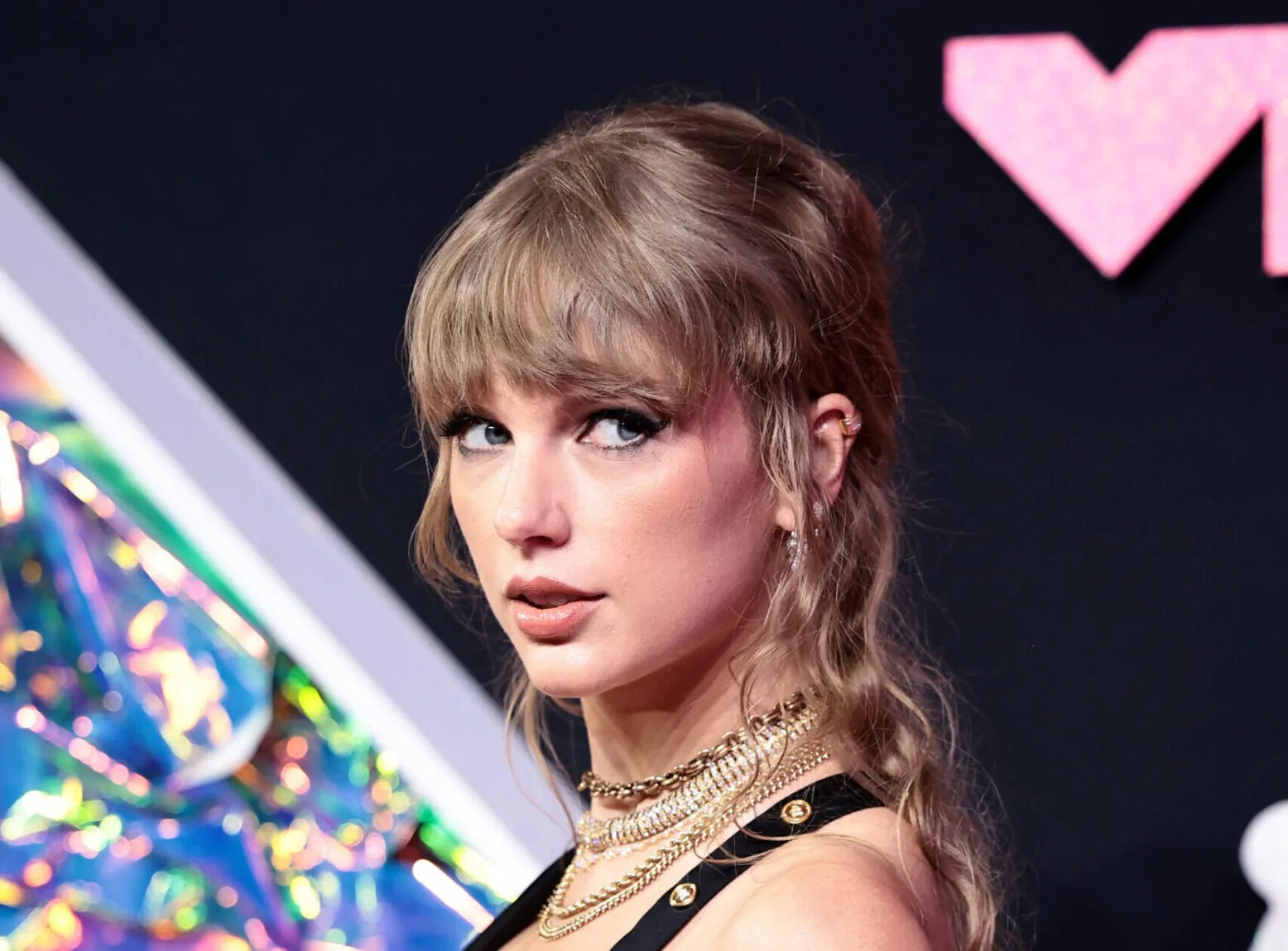
Former President Donald Trump recently shared AI-generated images on Truth Social, his platform, falsely suggesting that pop star Taylor Swift and her fans are endorsing his 2024 presidential campaign.
These posts include images of Swift dressed as Uncle Sam with the caption, “Taylor wants you to vote for Donald Trump,” and groups of young women wearing “Swifties for Trump” t-shirts. These images, which appear to be AI-generated, were originally shared in a satirical post on X (formerly Twitter).

Trump’s use of AI-generated content extends beyond the false Swift endorsement. He also posted an image that appears to show Vice President Kamala Harris addressing a crowd in Chicago with a communist hammer and sickle in the background. This image, like the others, is likely AI-generated and serves to misrepresent Harris, who is a key figure in the upcoming Democratic National Convention.
States Face Challenges Regulating AI in Campaigns
The AI-generated content comes at a time when the use of such technology in political campaigns is raising serious legal and ethical concerns.
Although some states have enacted laws against election deepfakes, experts like Robert Weissman, copresident of Public Citizen, argue that Trump’s posts might not violate these laws due to their exaggerated nature. Such content typically falls outside the scope of current regulations, which often target more plausible AI-generated disinformation.
Noah Downs, an intellectual property and entertainment lawyer, highlighted the growing issue of AI impersonators, particularly in celebrity endorsements. This trend has become so prevalent that even the TV show “Shark Tank” issued a public service announcement to warn fans about fake AI-generated endorsements. Downs noted that AI-generated content like the one Trump shared is becoming more common, making it challenging to regulate effectively.
Swift’s Legal Options Remain Unclear
Taylor Swift, who supported the Biden-Harris campaign in 2020 and criticized Trump publicly, has not commented on the 2024 election. However, the misuse of her likeness in these AI-generated images could potentially lead to legal action.
In Tennessee, where Swift has business ties, the recently passed ELVIS Act could provide some legal recourse. This law, signed by Governor Bill Lee in March, was designed to protect artists from unauthorized AI-generated imitations of their work. However, its primary focus is on audio impersonations, leaving its application to visual content like Trump’s posts uncertain.
Avi D. Kelin, a partner at PEM Law specializing in political law, expressed doubts that the ELVIS Act would apply in this situation. He pointed out that the law’s focus on audio-based impersonation might limit its effectiveness against visual AI content. Kelin also questioned whether the Federal Election Commission (FEC) would address the broader issue of AI-generated political content, noting that new guidelines are unlikely to be introduced this election cycle.
Social Media Platforms Escape FCC Regulation
While the Federal Communications Commission (FCC) is considering new AI transparency requirements for TV and radio advertisements, these rules do not extend to social media posts by political candidates. This gap in regulation is significant, especially as research from the Center for Countering Digital Hate (CCDH) shows a 130% monthly increase in AI-generated disinformation on X over the past year.
Swift’s potential influence in the political arena is considerable, with more than half of U.S. adults identifying as her fans, according to Morning Consult. Given this, misleading AI-generated content involving her could have substantial implications in a closely contested election.
As the legal landscape surrounding AI-generated content evolves, cases like this could test new laws like the ELVIS Act, setting important precedents for how AI technology is regulated in the future.
Featured Image courtesy of Dimitrios Kambouris/Getty Images
Follow us for more breaking news.
